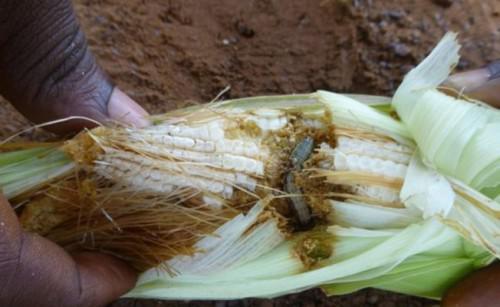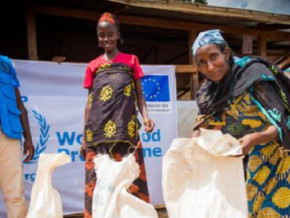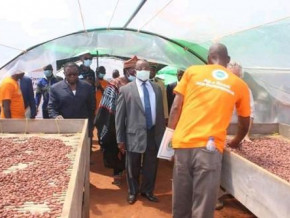
The armyworm, found in seven out of ten regions, is threatening Cameroon’s cereal production

(Business in Cameroon) - According to experts from the Cameroonian Ministry of Agriculture and Rural Development, the armyworm, an insect which mainly affects cereals such as maize and sorghum, has already invaded several hectares of plantations in the Northern, Far North, Adamawa, Central, Western, South-Western and Littoral regions.
But, we learned, the presence of this insect, which was detected in seven out of the ten regions in Cameroon, is more pronounced in the Northern region, where the armyworm has already attacked 36,700 hectares of plantations, we officially learned.
With a plant destruction capacity of between 25 and 75% according to experts, this insect is threatening the country’s cereal crop, particularly in the three northern regions of Cameroon (North, Adamawa and Far North), where cereals (maize, sorghum, millet) are the staples.
In this part of the country, we learned from local sources, it is currently difficult to find cereals, because of the lean season marked by the low supply, whose consequence is the increase in prices. Indeed our sources indicate, a bag of maize, for example which used to cost between FCfa 12,000 and 15,000 just a few months ago, is now sold between FCfa 22,000 and 23,000 on the local market. Therefore, there is a rush to stores held by the Cereal Office of Cameroon, based in Garoua. This public organisation is in charge of building stocks of cereals in periods of good crops, keeping these and making them available to the population in times of lean seasons, at affordable prices, which currently vary between FCfa 16,000 and 16,500, according to our sources.
According to some agronomists, this year, the lean season feared by the population in the northern regions could extend beyond the month of September, which is usually the time when the harvest begins. Not only because of the fall in production, due to the damages caused by the armyworm, but also because of an increase in the demand in cereals noted for some years now, due to the World Food Program’s massive purchases (WFP), to feed Nigerian and Central African refugees staying in the Far North, Adamawa and Eastern regions of the country.
Moreover, the looming drop in cereal production should further complicate the activities in the national poultry sector (maize is one of the main component of the feed given to chicks, Ed.), already severely affected by an extended bird flu epizooty last year.
Brice R. Mbodiam
Mags frontpage
- Most read 7 days
- shared 1 month
- read 1 month































